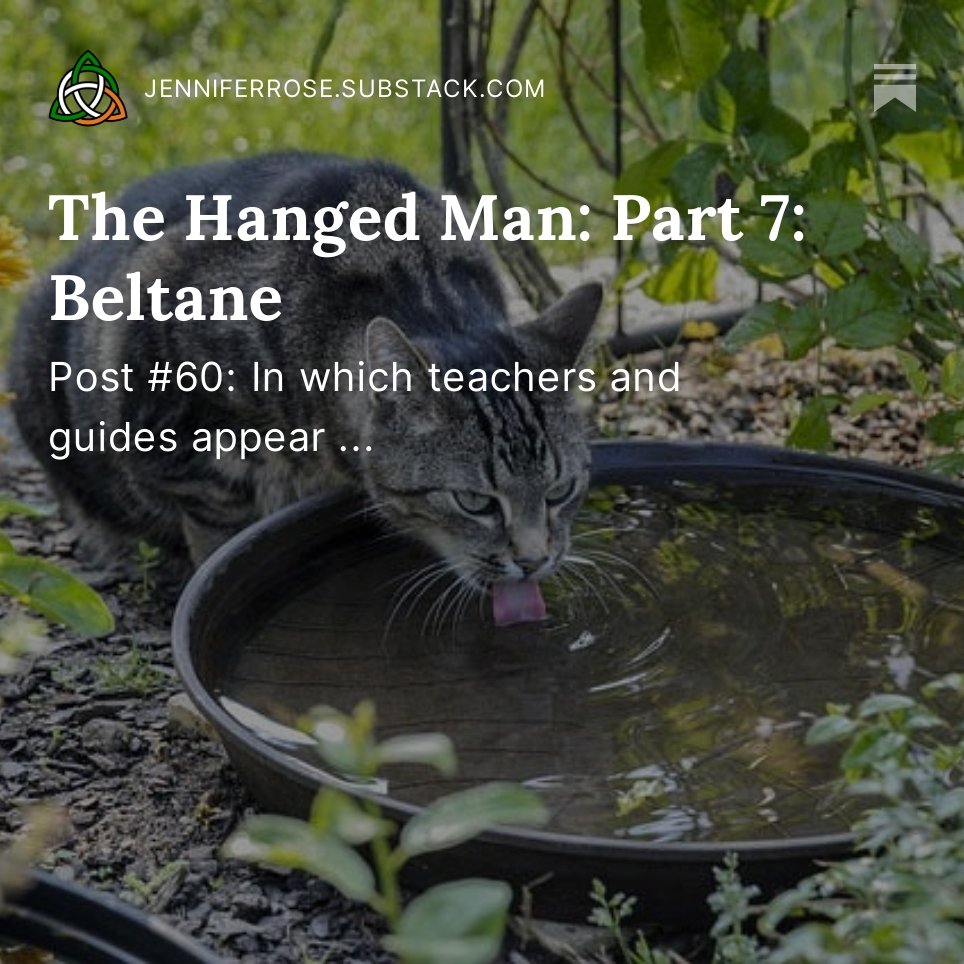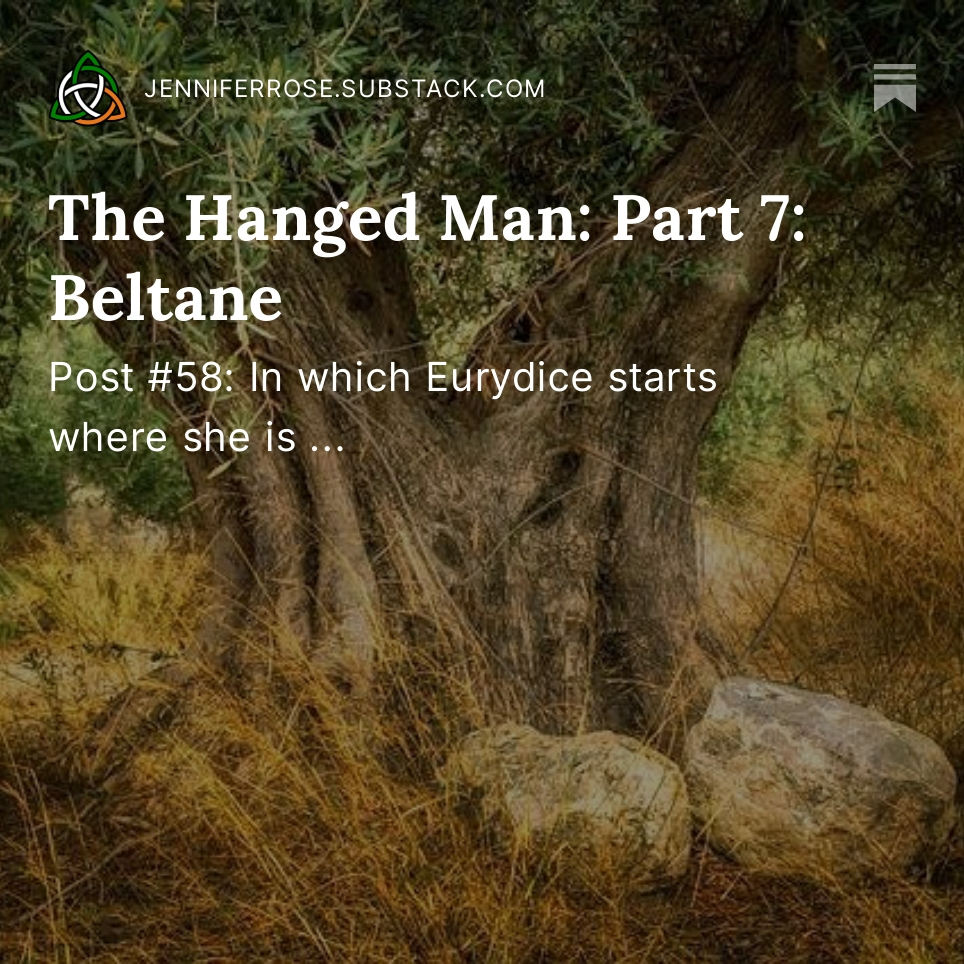by Jenny Rose | Jun 24, 2023 | Connection & Community, Emotional Intelligence
My work team and I provide services to patients and the public in our aquatic rehab facility in Central Maine, which means it’s impossible for me to live in a bubble. Thank goodness.
I’ve been complimented, praised, flirted with, yelled at, accused, and blamed. I’ve listened to a wide range of political and religious viewpoints with a polite face on. I’ve dealt with tears and tantrums (not talking only about the kids here). I’ve heard about medical and family history in excruciating detail, often repeatedly. I’ve watched patrons and patients get better, and I’ve watched them get worse. I’ve watched them lose weight and gain weight. I’ve met grandchildren and siblings when they visit Maine. I interact with people who are confused, struggle with memory loss, or are affected by dementia, either their own or a loved one’s.
I’ve seen a variety of sexual identities, gender presentations, and body dysmorphia (and no, I’m not conflating body dysmorphia with homosexuality.) My team has served patrons who are listed on our state sex offender registry.
We serve deaf patrons, autistic patrons, anxious patrons, mentally ill patrons, special needs patrons of all kinds and ages. We serve an occasional minor who gets dumped in our emergency room and lives there for a time while the authorities try to find placement.

Image by Bob Dmyt from Pixabay
People. All kinds of people. All colors, shapes, ages, and sizes. All different.
People just like me.
I notice a thing in the present cultural discourse. People who browbeat others about inclusion and tolerance invariably are the least inclusive and tolerant.
Talk (and typing) is cheaper every day.
As a writer and lover of words, I notice a deluge of new terminology and labels, many of which strike me as ridiculous, redundant, and/or meaningless. Their sole purpose appears to be to increase the ways we can despise and exclude one another. At the same time, there’s an ominous drumbeat in the background about ideas and words some person might find offensive and therefore must be forcibly eradicated. A few months ago one of my adult sons said to me, “Mom, you can’t use the word science in public,” as though explaining socially acceptable language to a child. All I could do was look at him in disbelief.
Science is not a dirty word. Disagreement is not hate, and respect and tolerance do not equal agreement. Asking questions is not a call to arms.
The Word Police are out in force, trolling online and hijacking us in public places. Virtue signaling has begun to take the place of authentic discourse. We’re harshly and instantly judged and labeled by the language we use and the ideas we express.
Toni Morrison said, “Definitions belong to the definers, not the defined.” I think about that every day. Another phrase frequently in my mind is “I’m okay with your disapproval of me.” People have been disapproving of me since the day I was born. I’m used to it. The sky hasn’t fallen yet and somehow I manage to continue to exist.
I’m not the slightest bit interested in disapproval, labels, or sweeping generalizations, which are increasingly idiotic as labels proliferate.
I’ve been reading lately about the “tribe of one,” the logical endpoint to the cultural mandate to divide ourselves into ever-decreasing groups until we’re each completely isolated, believing no one can possibly understand our particular experience as a self-defined ______, _____, etc. Therefore, the world is against us, we’re marginalized and oppressed victims, and we’re owed power, respect, and tolerance no matter how egregious our behavior is. No one is included in our little bubble. Everyone is excluded. Yet we expect and demand inclusion, which is to say, accommodation.
Who benefits from this solipsistic isolation? Is this the kind of human experience we want for ourselves, for our children? Is this social justice?
There are other paths to take. We could focus on our similarities, on the common human experiences binding us all together. We could build a new lexicon of connection rather than division. We could stop using labels, even in the privacy of our own heads. We could value curiosity more highly than outrage, confidence more than a constant state of offense. We could value authentic expression more than virtue signaling.
We seem to have forgotten the real world is not a set of disconnected bubbles. An infinite number of labels (including pronouns) cannot describe the entirety of a human being. Experiences define human beings. Birth. Death. Connection. Feelings. Living in a body. These bind us together. The life we are living defines us, not labels.
Every single one of us in this moment is included in the human family. We all have that in common. Why are we so determined to slash that root into pieces? I ask again, who benefits from this brutal severing? Why are we participating in it? How have intelligent, well-meaning, compassionate people become machete-wielding destroyers, all the while mouthing words like ‘inclusion’ and debating pronouns?
At work (and elsewhere), I’m focused on people. Of course I notice skin color, sometimes eye color, hair, body type, spoken language, cognitive and physical ability. I also notice tattoos, scars, stretch marks, skin tags, moles, and the occasional blood-bloated tick! Swimming suits are revealing clothing. None of these details define anyone, however. For me, they’re value neutral. I don’t connect or disconnect because of someone’s appearance. I can’t make valid generalizations about anyone based on the way they look. We treat everyone who comes in the door with the same respect; our expectations in terms of adhering to our safety rules are the same for everyone. We accommodate differing physical abilities and needs without fuss.
Wheelchairs, walkers, prostheses, oxygen, health status and injury are details, not definitions.
Now and then I interact with someone I hardly know who makes it plain they disapprove of something I said, or wrote, or chose. They were triggered. They were outraged. They were offended. I’m met with a curled lip, judgement, and criticism. I’m made to understand I’m hateful and bigoted, which I don’t take too seriously, as I’m neither. Anyone who knows me at all knows that.

By Landsil on Unsplash
In short, I’m immediately excluded, and there is no court of appeals. There’s no mutual bridge-building. Because of a word or an expressed point of view I’m entirely rejected, now and forevermore. Most of the time I consider the source and shrug off this kind of interaction. In certain circumstances, however, it’s destructive and hurtful in a more personal way. We can’t always choose the people in our lives. I can’t build connections alone.
Situations like this invariably catch me off guard. When someone expresses a view or belief I disagree with, I simply step around it. I change the subject, probing for connection points. I don’t concentrate on our differences or potential disagreements. I don’t expect others to fall in line with my beliefs. I don’t shame or shun others because they have a different point of view. I don’t think of myself as being on higher moral ground, and when others come at me with moral indignation, it makes me smile inwardly. Good grief! Get over yourself already.
I’m willing to include you. Will you include me? I ‘ll give you tolerance and respect. Will you give them to me? I’ll give you the benefit of the doubt. Will you give it to me?
I’d rather be curious than outraged. I’d rather have confidence in myself and my experience than maintain a hair trigger on my sense of offence. Most people don’t mean to be offensive. If they do, it’s best to ignore it. Life is too short to spend my days in a constant state of outrage and offense. It doesn’t change anything and nobody cares. Cultivating a sense of humor is more fun.
We’re not entitled to have our triggers, sensitivities, and ideology accommodated.
If we’re all especially vulnerable, broken, or traumatized, none of us are. If we’re all oppressed victims, none of us are. If we’re all vile haters and bigots, none of us are.
What we all are is … human beings. As human beings, not a single soul is excluded. Isn’t it enough to simply be the best human beings we can be and allow those around us to do the same?
Questions:
- When you think of a person in your life, do you think of a list of labels or do you think of a human being? Once someone is labeled, do you ever feel you’ve mislabeled, misunderstood, or misjudged them? If so, do you admit it and eradicate the label?
- Can you describe someone you know without using a single label? Try it!
- In the first five minutes of contact with a stranger, are you seeking to build connection or mentally applying labels to them? Which labels do you check for first?
- Do you turn away from anyone who disagrees with or questions your particular ideology or belief system? Do you view such people as hateful? Is it possible to disagree with you or question you and still be a good person?
Leave a comment below!
To read my fiction, serially published free every week, go here: 
by Jenny Rose | Jun 10, 2023 | Connection & Community
I’m living inside this poem right now:
Ozymandias
I met a traveller from an antique land
Who said: “Two vast and trunkless legs of stone
Stand in the desert … Near them, on the sand,
Half sunk, a shattered visage lies, whose frown,
And wrinkled lip, and sneer of cold command,
Tell that its sculptor well those passions read
Which yet survive, stamped on these lifeless things,
The hand that mocked them, and the heart that fed:
And on the pedestal these words appear:
‘My name is Ozymandias, king of kings:
Look on my works, ye Mighty, and despair!’
Nothing beside remains. Round the decay
Of that colossal wreck, boundless and bare
The lone and level sands stretch far away.”
–Percy Bysshe Shelley
I want to escape this haunted place, walk away, never look back, forget, and wander among green trees, feeling their breath on my face. I want the blessing of the rain on my skin, to plunge my hands into rich soil, lie open to birdsong and the sun’s touch.
I want to be free.
Yet, again and again, I find myself crouching in front of that shattered visage, tracing the frown, the wrinkled lip, the sneer of cold command, unable to leave it or look away. I remember, and weep, and try to understand how something so mighty, so powerful, can fall and break apart, become nothing more than a colossal wreck in a desert in an antique land, unvisited, unremarked, nothing but time’s debris.
I was born in the shadow of those stone legs. I watched the sculptors at work, perfecting, shaping. I learned to worship Ozymandias, to make myself small before him, to endure his stony displeasure and indifference.
I did not know his name for a long time, not until I read this poem in high school. He was called Money. He was called Status. He was called Power. He was king of kings – that I never doubted. He required unceasing sacrifice; though I sacrificed everything I had, the sneer and wrinkled lip looked down upon me in infinite contempt. I looked upon his works and saw destruction and anguish. I saw lies and shattered lives and I despaired.

By Wei Gao on Unsplash
I left. I crawled away under the weight of my own inadequacy and unworthiness, across the lone and level sands, feeling his stone gaze upon me. I left, and one day I got to my feet and walked, and then I remembered how to dance, and swim, and the world opened up for me, showing me friendship, healing and joy.
Then, across the years, across the miles, Ozymandias fell, and the ground of my being has shuddered and convulsed with the impact ever since.
Understand, when he fell it all fell. Secrets lay revealed. Lies tumbled naked in the desert sun. Ozymandias, so carefully sculpted by generations before me, disintegrated. I understood then what I was taught to call Money was really named Fear. Status was in fact Shame. The wrinkled lip and sneer of cold command were not love, were never love. The king of kings lay forgotten, impotent, slowly wearing away to sand.
“Look on my works … and despair.”
It’s all gone, the gods of my childhood, the king of kings, the money, the status, the false power.
All gone.
Except for me. I am not gone.
In Maine, I eat and sleep. I journal and write. I walk to work, talk to people, laugh, teach. I sweat on the elliptical and exercise in the pools. I pay bills, make plans, file papers. I buy groceries and cat food. I do laundry and clean. I work in the garden. I’m distracted and absentminded, prone to sleeplessness and unexpected fits of tears welling from some deep unaware place. Or, on the other hand, maybe that place is all I’m truly aware of right now.
I talk and text and email to staff at the memory care center in Colorado where my mother resides, to her hospice team, to people at the agency we’ve now hired by request to provide extra caregiving. I hear about dementia, combative behavior, falls, sabotaged bed alarms, incontinence, sleeplessness, anxiety, medication adjustment. I am called to calm Mom down as though that was ever possible, as though she trusts me or ever took any comfort from me.
And part of me kneels in the desert, watching the family money (a mere pittance, judged by today’s standards rather than those of 100 years ago) and pride, that towering edifice more important than love, more important than health and happiness, more important than anything, sink into the desert like water. Is the desert powerful enough to cleanse it? Shattered Ozymandias still frowns, wrinkles his lip, sneers his cold command, but his works have disappeared even as he himself wears away.
Do I grieve or rejoice? I try to understand. I try to feel something more than despair at the waste of lives, at the dearth of love.
One thing I know: I will not stay here, beside Ozymandias. It’s a cursed place, a dark place. I will leave it to the circling vultures, the sun, the wind, and the silence. I will leave it to Time to wear away the sneer, the frown, the wrinkled lip, the trunkless legs. I left once, and I will leave again. I know this desert is a small place and the world is wide. I know who I am now. I know what love is, and that I’m capable of it. I am no longer alone.
I would have saved my family if I could have, but my gifts have no monetary value. What I have to give, what I am, cannot be bought or sold. I do not accrue a good rate of interest. I was not judged a sound investment. I did not increase my family’s status. Ozymandias, king of kings, was incapable of seeing or knowing me, being far too dazzled with his mighty works, dissolving now into sand while I myself, still vital and alive, pause to find absolution and mourn, groping for a way forward, watching it all decay.
Questions:
- What idols have fallen in your life?
- What family secrets have you discovered?
- Do you find comfort in the eventual fall of what once seemed all-powerful, or does it frighten you?
- How have you challenged your family’s definition and expectations of you?
Leave a comment below!
To read my fiction, serially published free every week, go here: 
by Jenny Rose | May 27, 2023 | Connection & Community
My partner tells me I “build bridges.” He’s right. I do. All the time. Building connection is the foundation of my life – connection with myself and with others. I also do what I can to support connection between others.
It’s no wonder I feel increasingly alienated in a culture focused so strongly on division.

Image by Bob Dmyt from Pixabay
Some people, and right now many people in power, are breakers rather than builders. I won’t pretend I understand such a priority, but it’s undeniably real and undeniably destructive.
As I’ve thought about building bridges, I’ve realized underneath the patterns of building or breaking is a larger issue: power.
If evil exists, I believe one of the first steps on the road to it is the willingness to steal power by any and all means. When individuals and groups of people lose their power, they’re easy to break, easy to disconnect and isolate. Easy to control.
Dedicated power-stealers are very, very skilled at what they do, so skilled they often present themselves as the marginalized or disempowered victims. In this guise, they infiltrate systems, organizations, and groups like a cancer, steadily breaking healthy connections and communities and appropriating power. By the time enough people notice, clearly identify what’s happening, and organize resistance, the balance of power is so skewed serious conflict becomes inevitable. Those addicted to stealing and hoarding power don’t give it up without a fight. This classic aggressor behavior is referred to as DARVO: Deny, Attack, Reverse Victim and Offender. In this dynamic, when individuals and groups are forced to defend themselves from aggressors their defense is framed as bigotry and hatred. Brutal social sanctions steered by those who steal power are activated to stifle it.
Few see past the emotional rubble and wreckage of destruction to the offense triggering the defense, and even fewer see past all the drama and distraction and recognize a simple, savage power grab disguised as social justice, political correctness, compassion, empathy, etc.
This is not to negate the true problems of systemic and institutionalized racism and bigotry so many people stagger under every day. We all know power (and other resources) are not distributed equally – far from it. And why is that? Because there have always been people who are committed to disempowering others.

Photo by Tim Gouw on Unsplash
I’m a builder, not a breaker. Not a breaker, I hasten to say, in the sense that I deliberately hurt others or injure healthy connection. However, I have more than once tried to build a bridge to nowhere. Worse, I have spent much of my life frantically maintaining my bridges to nowhere, a kind of counter-terrorist who never blows up a bridge but instead batters myself against a broken one as though my blood, sweat, and tears will magically build a solid, effective connection.
The thing I invariably forget is not everyone wants to build a bridge!
Sometimes, and I’ve done this, we blow up bridges accidentally. Some action or word becomes a catalyst and suddenly … BOOM! The bridge is destroyed and we’re left wondering what the hell happened.
Sometimes our bridges are sabotaged by others and deliberately destroyed. Unless both parties connected by the bridge understand what’s happened and work together to make repairs, the bridge becomes permanently weakened.
Sometimes, and I’ve made this choice, too, we deliberately walk away from a bridge we’ve built. It didn’t connect us to what we were hoping for, or it didn’t connect us at all. We built the bridge, it went nowhere, and we found no there there, so we leave it behind to fall into disrepair.
Saddest of all (to me) are the people who don’t value bridges, or can’t recognize them. Building is expensive. It takes time, patience, commitment, and cooperation. It takes emotional labor. For me, the rewards of good bridgework are enormous. Healthy connections enrich us and I believe bring joy and healing into a suffering world. Healthy connections enhance individual power and are productive and creative rather than destructive.
Anyone can destroy. How many can create?
At the same time, I accept and endeavor to respect that some people have no interest in building bridges, at least not with me. Some people are focused on other things, and the activity central to the meaning and purpose of my life isn’t in their field of view at all.

By Landsil on Unsplash
It’s probably unwise and unnecessary to take this personally, although I have a tendency to do so. On the other hand, I have no interest in coercing anyone to build a bridge between us. Forcing healthy connection is impossible, not to mention coercion is a power-over tactic I don’t employ or participate in.
Sometimes I build bridges to nowhere. I work hard, for a long time, because that’s my default. Eventually, however, I notice I’m the only one building. A little bit after that I wonder what would happen if I stopped building. Would the person I want connection with even notice? Would they pick up the work I left undone? Would they value our potential connection enough to meet me half way? Part way?
Honestly, in the case of most of my bridges to nowhere, once I stop building the building stops. I move on, looking for another place to build another bridge. Those abandoned bridges are, at best, picturesque ruins going … nowhere. Resting places for unrealized possibility and potential. Crumbling monuments to loss, heartbreak, letting go, and wisdom.
Questions:
- Consider your life. Are you more of a builder or a breaker?
- When you struggle to connect with someone who’s just not that into you, how do you feel?
- If you can’t successfully build a connection with someone, do you leave quietly or blow up the metaphorical bridge you were trying to build?
- Who or what has sabotaged previously healthy connections in your life?
Leave a comment below!
To read my fiction, serially published free every week, go here:
by Jenny Rose | Feb 25, 2023 | Connection & Community, Emotional Intelligence, Shadows
I found a brief offering in my Inbox from Seth Godin recently about bitterness being a wall we can lean against. The image caught my imagination. Since then, I’ve been thinking about walls … boundaries … supports … prisons … and the desperate, destructive choices we make to survive.

By Marc Pell on Unsplash
Walls. On the one hand, I like walls. I invariably position myself with my back against a wall when I’m in crowds or unfamiliar places. Nothing malignant can sneak up on me from behind. All my hypervigilance can go into watching my sides and front. I feel safe(er).
A corner is even better. Now two sides are covered.
A third wall, as in a blind alley or cul-de-sac, begins to feel more like a trap than a place of protection. What if I want to run away? I’m blocked on three sides.
A fourth wall? Now I’m in prison.
The thing about walls is they may keep danger out, but they keep everything else out, too. The good stuff. Love. Sunshine. Wandering children and butterflies. Inviting paths and trails. Possibility. Exploration. Views. Perspective. Wonderful surprises.
Walls, like everything else in life, can be taken too far. Built too wide and thick. Impenetrable. Too high to climb.
Shelter or dungeon?
What about metaphorical walls? What do we lean against because it’s familiar and we believe it keeps us safe from failure, from disappointment, from heartbreak?
Bitterness, certainly. We’ve risked. We’ve been vulnerable. It ended badly. We feel angry, disappointed, resentful. Never again, we tell ourselves. Things don’t work out for us. The world is against us. People suck. Life sucks. It’s our story, and we’re sticking to it. We’ve found a wall to lean on, a wall protecting us from trying again, risking again, feeling unpleasant feelings again.

By Hector J Rivas on Unsplash
But the wall is made of unpleasant feelings, isn’t it? Bitterness is the result of unresolved unpleasant feelings. So it’s really not protection. It’s reinforcement. It’s the thing closest to us pulling our focus from happier thoughts and feelings. It’s a constant negative reminder. It locks us in place with it, and it blocks any kind of relief.
As I’ve lived my life the last couple of weeks, interacting with and observing others, listening to the inside of my own head, I’ve made a list of walls we lean against:
Victimhood (closely allied with bitterness.)
Blame (oooh, this is a juicy one. “It’s not my fault. I have no responsibility, and therefore no power.”)
Denial (leaning on the wall, eyes squinched shut: “No, I won’t believe that! No, it’s not true! No, it’s not happening! It’s too scary! I’ll only accept what makes me feel good and in control!”)
Chronic health problems (“I would _________, but I can’t because I’m sick.” Sigh. Moan. Groan. Someone once said to me, “I don’t know what I’d do without my pain!” as though pain was her lover.)
Lack of money (“I can’t be happy. I can’t have/do what I want. I can’t experience abundance. I have no power.”)
Perfectionism (a personal favorite. “I would, but I’m afraid to because I won’t do it perfectly! So, no point in trying. I’m imperfect and therefore can contribute nothing of value, not even myself. Expect nothing from me. ‘Cause I’m so imperfect.”)
I don’t suggest we’re never victims, never have health problems, never experience financial scarcity. I don’t minimize the challenges of perfectionism or fear or the seduction of blame. However, constructing a wall out of such experiences and feelings and deciding to spend the rest of our lives leaning against it seems like a dubious choice. It may feel like it props us up and allows us to survive, but is survival the best we can hope for? Is leaning against a wall to stay on our feet the best we can do?

By Christina Botelho on Unsplash
Can a wall made of bitterness stand by itself? If we choose to step away from it, support ourselves, will the wall crumble? I wonder. What if the wall needs our support more than we need its support? It takes a lot of energy to maintain a wall.
What would happen if we just fell down instead of constructing walls to lean against? Better yet, what if we choose to lie down now and then, take a break, look at the sky, feel the world on our skin and beneath us? What if, when we feel hurt or despairing or sick or broken, we lay still and whispered, “Help!” and rested and waited for something or someone to come along and give us a hand back to our feet? If we’re not leaning (cowering) against walls, we’re in full view. Life can find us. Friends can find us. Help can find us. Hope, inspiration, and comfort can find us.
Walls can be useful. But they can also imprison us. They can be strong and organic and lovely, as in healthy boundaries. They can be poorly built and inadequate, too. Or just old and tired. Crumbling. Falling down. Gnawed away by Time’s tooth.
I ask myself, with all the world before me, why do I choose to lean against walls that separate me from it? Is that what I mean by safety?
Questions:
- What walls do you lean against?
- Do you think of a wall as protection or prison?
- How have your walls let you down?
Leave a comment below!
To read my fiction, serially published free every week, go here:
by Jenny Rose | Feb 11, 2023 | Connection & Community, Parenting

Photo by Tom Barrett on Unsplash
February. A couple of days with -40 degrees wind chill here in Maine that felt apocalyptic. A dead car battery. At work, a broken pump in one of the pools, private swim lessons, ill team members, and an upcoming lifeguard recertification training this weekend, which I’m sure I’ll pass. Probably. A $250 “unscheduled delivery charge” on a $500 + propane bill, as though the brutal cold was somehow our fault. A possible estate tag sale on the contents of my mother’s untenanted house in Colorado, as she now lives in memory care.
The sound of the cardinal at the birdfeeder. The cats basking on my desk in the morning sun. Blueberry lavender tea. The scent of a lavender candle. Imbolc, when the wild maiden returns. The Ice Moon, or, if you prefer, the Storm Moon. Daylight arrives earlier and lingers later.
Through it all, I think about The Mother. The Mother the wild Imbolc maiden might become. The Mother who nurtures, creates, carries the possibility of new life and beginnings within us. I think of biological mothers who labor and deliver a new baby into the world. I think of foster mothers, substitute mothers, women who grieve for their empty wombs. New mothers. Struggling mothers. Mothers whose children have grown and gone, or just … gone.
Sisters and aunts and grandmothers. The long line of mothers who stand behind our own mothers.
Myself as Mother.
I wrote down a quote recently. Unfortunately, I didn’t write down the source of the quote! I always think I’ll remember and then I don’t. Never mind. If it’s yours, let me know and I’ll give you full credit!
“A mother without fear of her own potential.”
There are so many ways to unpack this. A creator, an archetypal mother without fear of her own potential. Is there any artist or maker alive who doesn’t struggle with his or her fear of failure and success?
A young woman, simmering with hormones, discovering the power and potential of her sexuality in the context of rape culture and patriarchy; risking unplanned pregnancy, sexually transmitted diseases, violence, heartbreak, health, and even life.
A woman who longs to be Mother but cannot conceive, or carry, or deliver a living child. The yearning. The agony. The grieving and despair at being unable to fulfill such an overwhelming biological imperative. A woman who feels herself a vessel of death rather than a vessel of life.

Photo by Laercio Cavalcanti on Unsplash
A mother, the sweat of labor still on her face, swept with a ferocious love for the infant she’s just birthed, a love terrifying, passionate, transforming the landscape of her life irrevocably and forever.
A mother, lined, weary, anguished over her child’s unhappiness, ill health, addiction, behavior, wounds, choices, death. The passion of her pain equals the passion of her love. The passion of her rage and fear equal the passion of her love. How can this child we carried and cherished and loved so deeply, this child we would have defended with our teeth, our fingernails, our life, make self-destructive choices? How can they refuse to love themselves? How could we have failed to protect their health and happiness?
The ability to love like a firestorm, like a hurricane, like an earthquake, most would agree, is exciting and wild, a beautiful force of nature, perhaps the most powerful feeling in the world. But never forget passion cuts both ways. If we release and allow the potential of our love, we have opened ourselves equally to grief, loss, rage, unendurable pain.
I am a mother. I fear that potential.
Not that I had a choice. The feel of my newborn sons in my arms overcame me as powerfully as labor did. I was helpless before it. Their wellbeing and existence twined inextricably with mine in an instant. I made no conscious choice and had no conscious control enabling me to stand back from my potential as Mother.
I was Mother. They made me into Mother. I can never go back.

Photo by Liane Metzler on Unsplash
Yes, I know, boundaries are important. Individuation is important, as are freedom, letting go, and a hundred other facets of emotional intelligence I’ve written about on this blog. But I’m not talking about the long road of motherhood here, where we learn and stumble, fall down to rest, weep, get up, learn and stumble again. I’m talking about the timeless primal bond, deeper than language, deeper than reason. The wild love that works through us. Divinity, perhaps. Some would say The Devil. Whatever it is, it’s bigger than us. Bigger than me, anyway.
Do we imagine our own mothers feeling about us as we do about our children? Can we imagine it?
I can’t. If my mother felt for me what I feel for my sons, the tempest of her passion was never expressed in a way I understood it. Not in words, not in touch, not in action. Now, as she drifts in her dementia, I wonder, though, if she did feel as I did, but some great wound or constriction in her heart, now loosened because she does not remember it, did not allow her to express it. Perhaps her fear of her own potential as Mother was too great to allow her to demonstrate the depth of her love.
If so, I can understand. I can forgive.
Can I forgive myself as Mother? Can I forgive the things I didn’t say and should have, the things I did say and shouldn’t have, the unintended hurts and consequences as I made choices and lived my life? Can I forgive my inability to keep them safe every minute of their childhoods? Can I forgive my ignorance, my lack of understanding regarding their needs and challenges?
I used to tell a story about an orphaned boy who was “so lonely and so hungry nobody wanted to be with him.” That phrasing always made me fight tears when I spoke it. More than my many imperfections as Mother, can I forgive the way I tried to abandon the Mother part of myself? As my sons grew into manhood and began to live their own lives and I saw their challenges and pain, the Mother in me was too lonely and too hungry. Too filled with pain and rage, grief and shame. I turned away from her for a time, walked on without her, left her alone in the wilderness to live or die, as long as I didn’t have to experience her hunger, her loneliness, her feelings.
With my first child, I claimed the potential for Mother within myself. I flung myself into it, holding nothing back, having no thought of caution or reserve. And then, years later, I rejected it, abandoned joy and love because I could no longer face the pain. I severed myself from my own mother. I severed myself from my experience of Mother. I sundered myself and lived for a time with a cleaved heart.
But my love is a blind thing, a feeling without reason or logic. No matter the distance between my mother and myself, my sons and myself, my love did not diminish. Nor did the suffering that goes with it. The internal Mother I evicted grieved and wept. She lit candles and raged and feared and prayed for peace, for all to be well. She scratched at the windows of my life, whispered dreams beside my pillow, followed me like an abandoned spirit. She is mine and I am hers, though I tried to cast her away.
I know I will never be whole without her. The child within me, the crone I am growing into – both need the Mother. I need her as I care for animals and people, as I nurture new life in the garden, as I teach children to swim, as I write, as I cherish my friends and family. As I cherish myself.
Perhaps I simply needed a break from the pain. Perhaps I could not learn to love myself while being battered by the needs and demands of my mother and my sons. Now, my ability to care for and nurture myself gives me a place to pause, to rest. Perhaps, as I age, I am growing in wisdom, losing not the depth of my love, but the frantic edge that cuts so keenly. Love, after all, endures. Motherhood endures. I am the sum of my parts plus a little more. I cannot decide to be less. I might as well accept all of myself, reclaim all of myself, be all of myself. 
And so, I’ve returned, Mom. We were not a perfect mother and daughter, you and I. We each did our best, and now my best is better than that. Let there be peace between us now, at the end. I have never stopped loving you. And Mother of my sons, cease following me just out of sight. Come in. Let us soothe one another’s weary regrets and scars. We loved with everything we had. Those we gave life to were never ours to keep. They must walk their own paths. Let us find a way to release our love from our pain.
Let us reclaim one another.
Questions:
- What was your experience of being mothered?
- What has been your experience of being a mother in the wide sense, as a creator, a biological mother, or a substitute, surrogate, or foster mother?
- What potential in yourself do you fear?
- Who in your life has been so hungry and so lonely nobody wanted to be with them? Have you ever felt like that person?
Leave a comment below!
To read my fiction, serially published free every week, go here: 
by Jenny Rose | Dec 24, 2022 | Connection & Community, Emotional Intelligence
I’m continuing to play with blind journaling. It’s most useful when I notice physical and emotional signs of anxiety and speeding but am not sure what’s triggered them. Taking off my glasses, turning off the light (I journal early in the morning while it’s still dark), and concentrating on feeling out the roots of my symptoms leads me to the source of my distress. Doing this when I first notice symptoms interrupts the spiral of anxiety that might otherwise follow and increase during the day.

Photo by Nicole Mason on Unsplash
It works much better than distraction, like playing solitaire, which I’m still refraining from doing.
I think it will also be a great tool for concentrated writing time when I want to explore a prompt or address a specific scene or exchange of dialog.
I’ve been wondering this week how things might change if we were blind. All of us. A blind world.
A significant part of our brain is tied to interpreting the endless barrage of information coming through our eyes. Not only does life spool before us every waking hour, we add unmeasurable visual information as we look at our screens and consume media.
I notice how much simpler, less stimulating, and less distracting life is when I shut my eyes. There is a cool, spacious space between sleep and eyes open. It’s quiet in that space. I’ve written about visual noise before, which I’m particularly sensitive to. When I close my eyes, I immediately feel quieter. My attention is not demanded by visual input. I can come into presence with myself more easily. No surprise we meditate with our eyes closed.
My favorite sense is touch. Vision can lie, as can words we hear, but touch is honest. I can read pain in the way a friend holds her body, in her skin color, in a thousand subtle nonverbal visual signs if I pay attention, but touch, oh, touch gives me a flood of information that cannot be faked or hidden. When I practice healing touch, I often do it with my eyes closed. As a lover, I prefer no visual input, not because I’m hiding or uncomfortable with intimacy, but because touch is for me the most powerful and ecstatic love language. Readers of my fiction will see that reflected clearly in my writing.
It is through touch I have communicated my love and affection for animals; for children, lovers, and friends; for the natural world. My empathy and compassion flower with touch, as do tolerance and respect. In touch, in breath, in heartbeat, we are all connected. Flesh over bone. Hair. The landscape of a living body. Texture of stone, wood, water, earth, ice, plant.

Photo by Liane Metzler on Unsplash
Though blind, we would still hear. We could speak and listen. How uncluttered would our hearing be if we couldn’t see who we were speaking to, and if they couldn’t see us? No more written social media. No more selfies and digitally altered pics. No more dating profiles with pics. We’d be forced to actually speak to one another, whether on the phone or face to face. I suppose speech recognition AI would immediately fill this gap, though. No emojis – we’d have to communicate our feelings in real words. Barring AI, our jokes would sound like jokes. Our scorn would sound like scorn. Our sympathy would sound like sympathy. Our speech patterns and intonation would convey meaning in a way words on a screen never can.
It would be a world in which guns were useless.
We would be unable to see clothing, MAGA hats, skin color, tattoos, piercings, or anything else to which we attach sweeping generalizations or bigotry. We could assess only voice, touch, scent.
Scent is so much subtler than vision we often ignore it, but this sense can give us lots of information. We might smell of food, alcohol, cigarettes, cannabis, unwashed skin and clothes, urine or feces, sweat, sex. Sometimes sickness has a smell. Poor dental hygiene has a smell. A clean, healthy, vigorous person smells different than a dirty, ailing person. Smell, like touch, doesn’t lie. A closet drinker or smoker would be obvious, in spite of their words of denial. Ironically, without vision much of our cover would be blown.
If the whole of humanity was struck blind, capitalism as we practice it would come to an end. We would no longer be bombarded with images of products or people (or people as products). We would no longer compare houses, cars, things, body shapes, eye colors, hair colors. Most of the ways we proclaim our identity to the world would be swept away. Many of our perceived differences would literally vanish. We would no longer be burdened with visual standards of ugliness or beauty. In one stroke we would be pared down to our shared humanity: our choices, our behavior, our ability to cooperate and socialize with others, our skills, our integrity, our feelings. Visual pretense and presentation would no longer shield us; we would cease to be manipulated and our power to manipulate others would diminish significantly.

Photo by Frank Okay on Unsplash
No more NFT trading cards.
What a shame.
As I work with this exercise of imagination, I feel sad. Vision is such a miraculous gift, and beauty so nourishing. But we don’t always use it as a gift. We use it as a tool with which to make money, with which to hurt others, and with which to hurt ourselves. Most of us take our visual-oriented culture for granted and never give it a thought at all.
I also feel afraid. Our visual sense is so chaotic, so inexorable and powerful; we rely on it for most of our choices and beliefs. But vision lies. Increasingly, it misleads. AI is becoming more effective. Deep fakes are harder to spot. Advertising is ever-more powerful. And we nestle more and more deeply into the matrix, seduced and shackled to the surface of things, the presentation.
What would it be like if the world was blind? Would we then access deeper levels of our shared humanity and connection to one another?
Imagine My Surprise
Imagine my surprise,
sitting a full hour
in silent and irremediable
fear of the world,
to find the body
forgetting
its own fear the instant
it opened and placed
those unassuming hands
on life’s enduring pain,
and the world for one
moment
closed its terrifying eyes
in gratitude.
Saying,
“This is my body, I am found.”
–David Whyte
On a personal note, I’ve decided to transition to posting on Harvesting Stones biweekly rather than weekly going forward. I’ll continue to serial publish on Substack weekly.
Questions:
What is your favorite sense? Why?
What sensory input do you trust the most?
How would you feel about your body if you had never seen yourself?
How would you feel about your body if you had never seen another’s?
Leave a comment below!
To read my fiction, serially published free every week, go here:


















